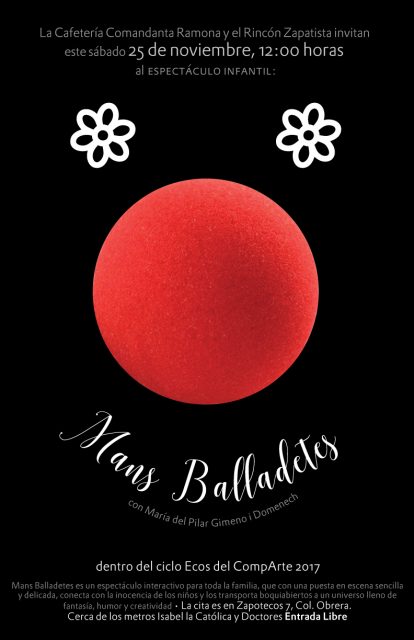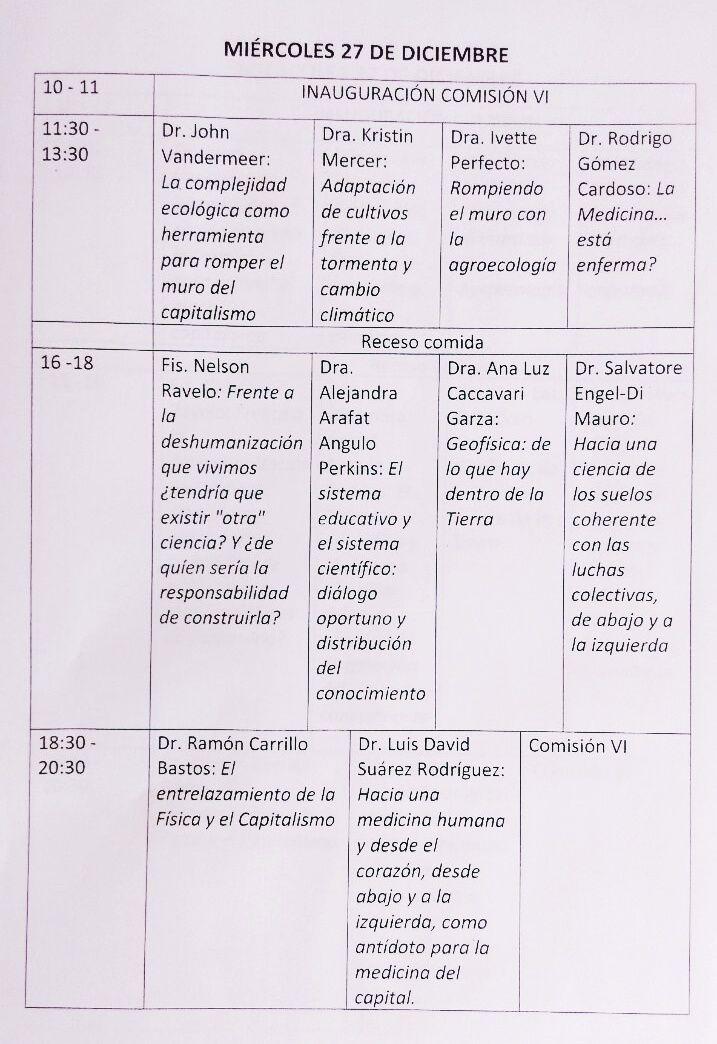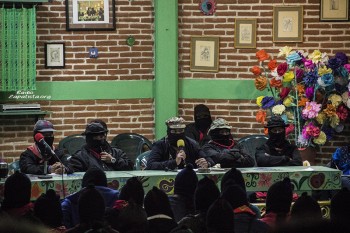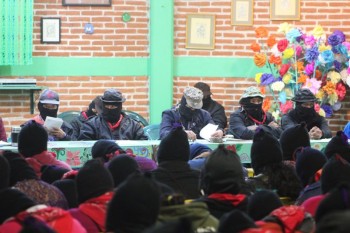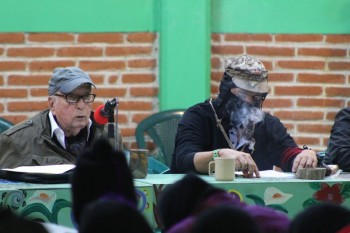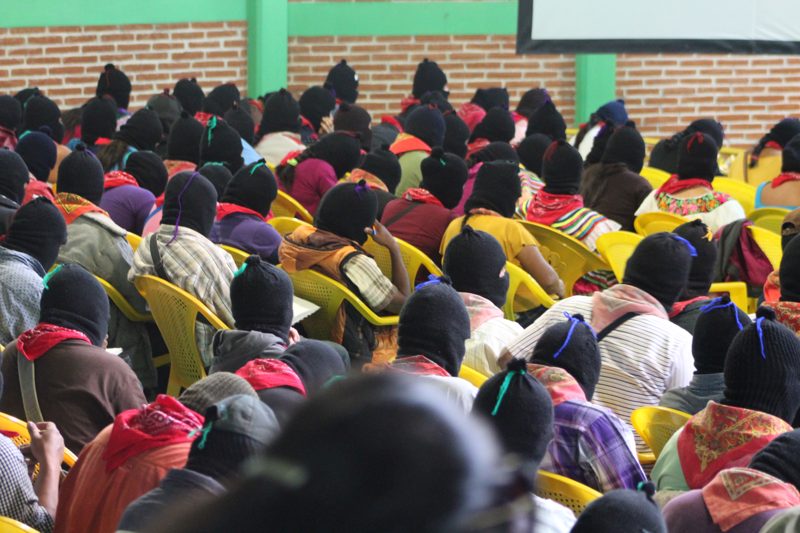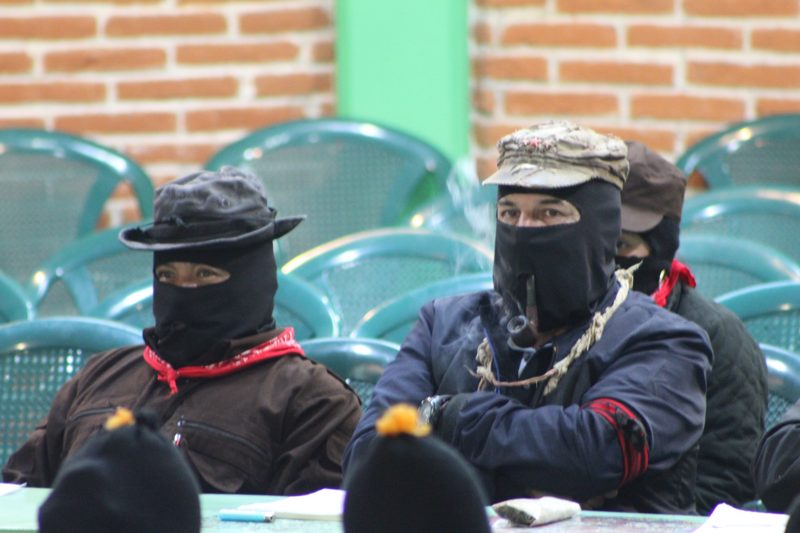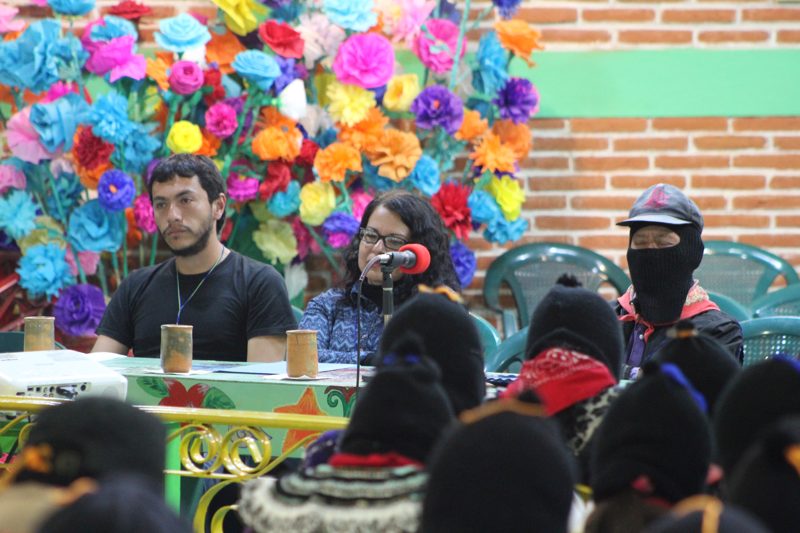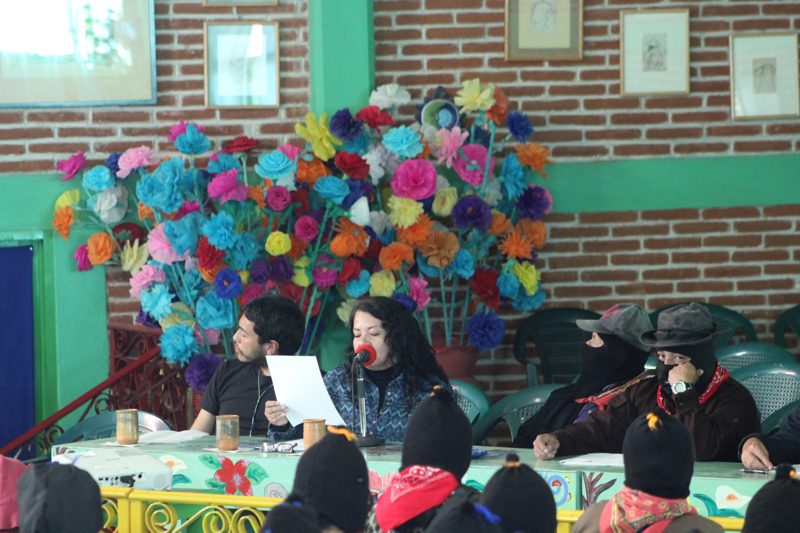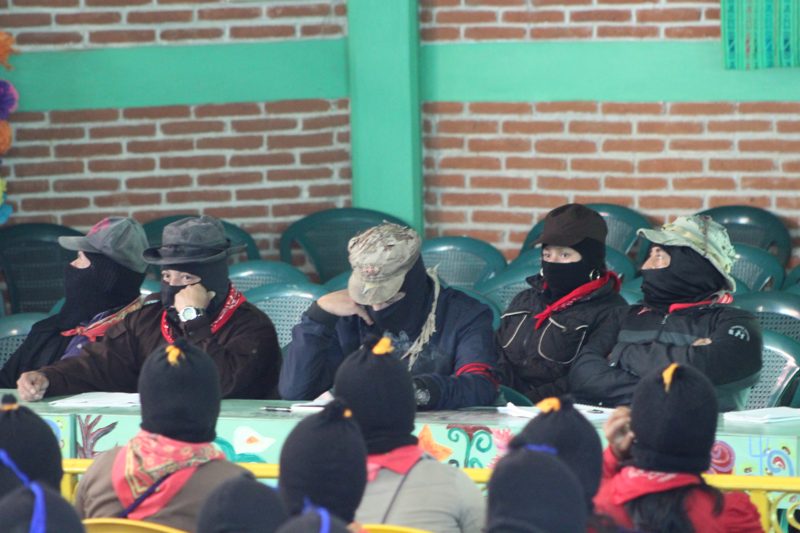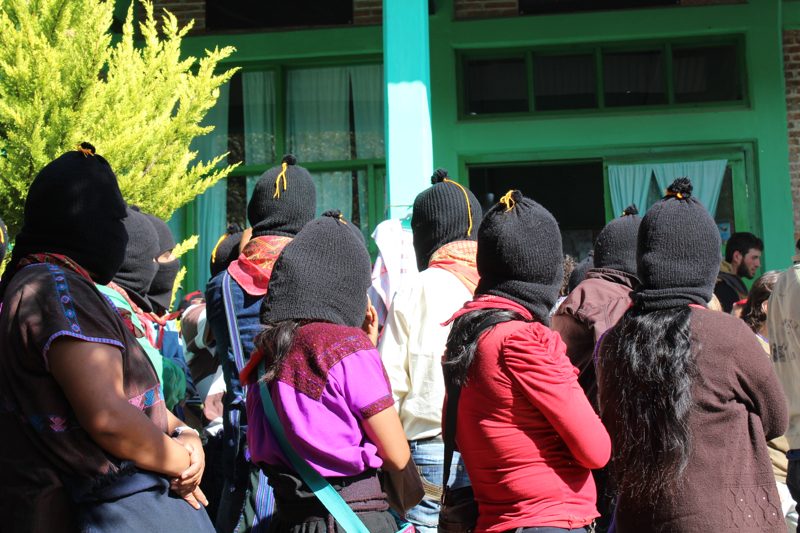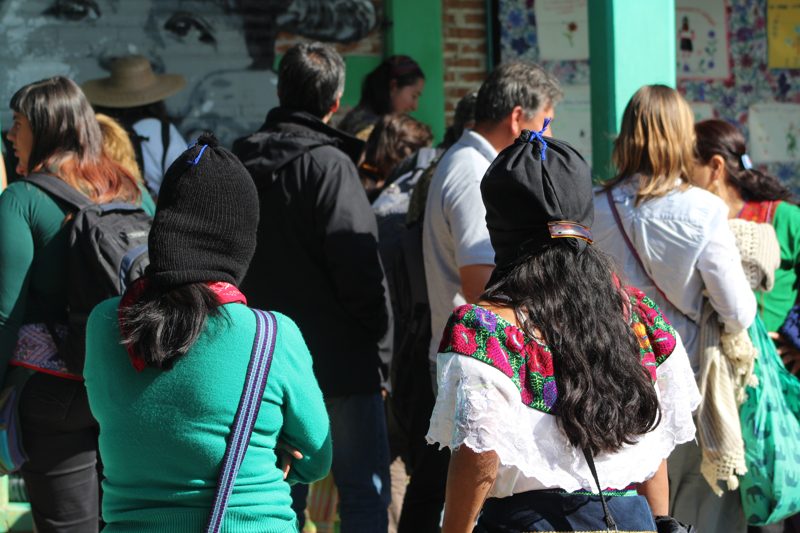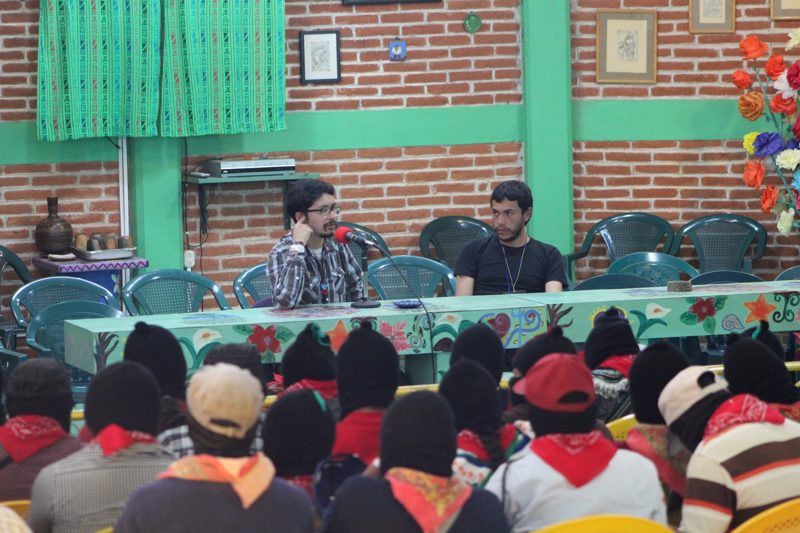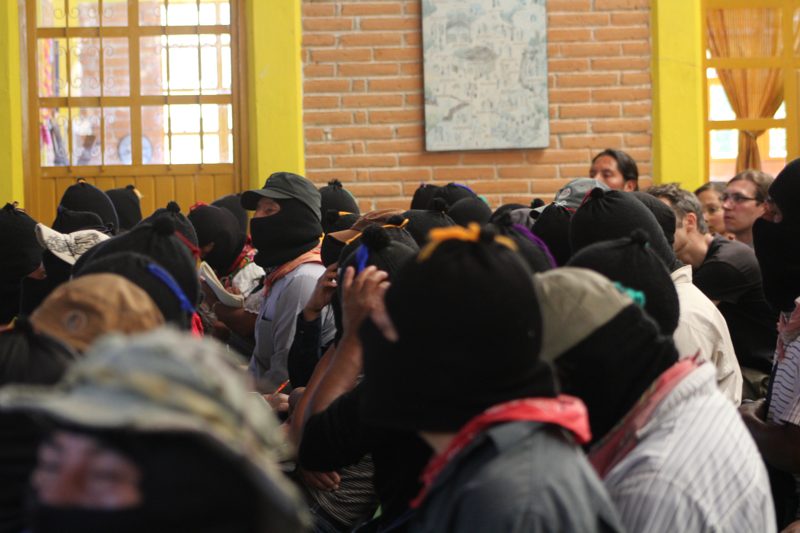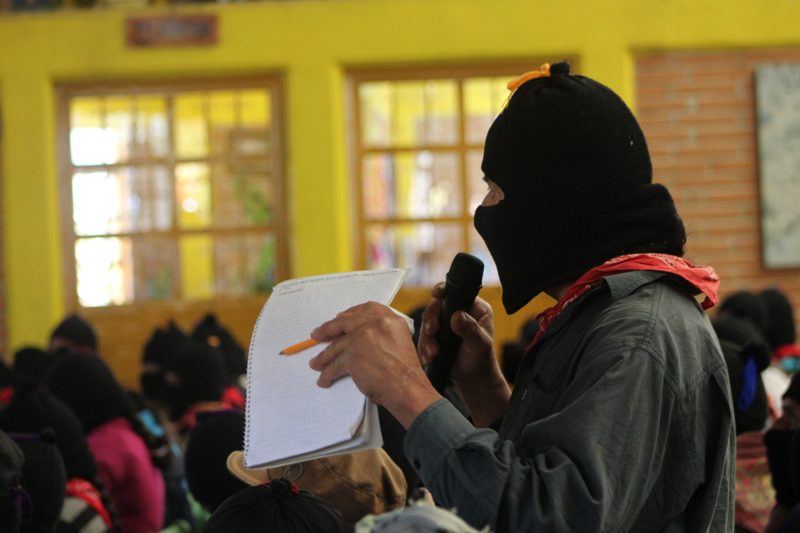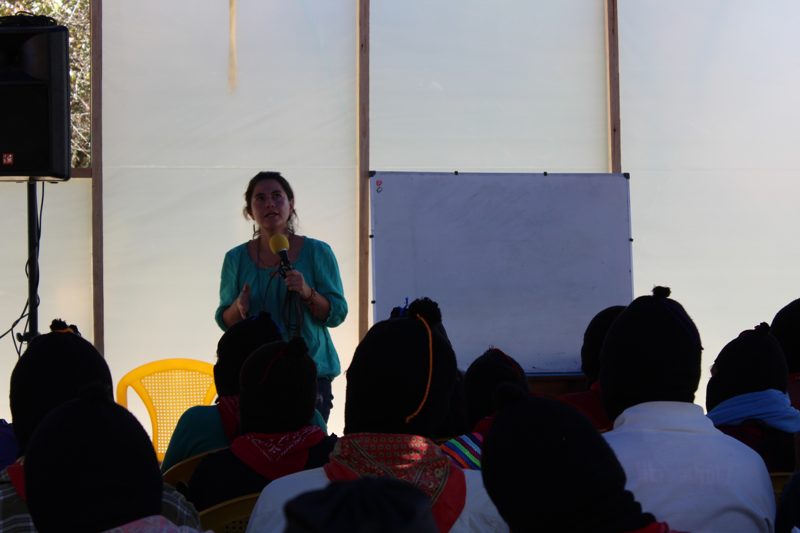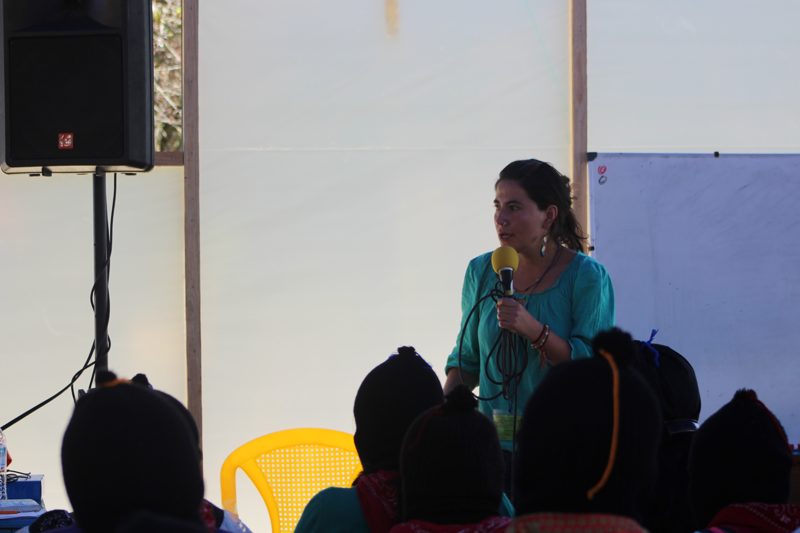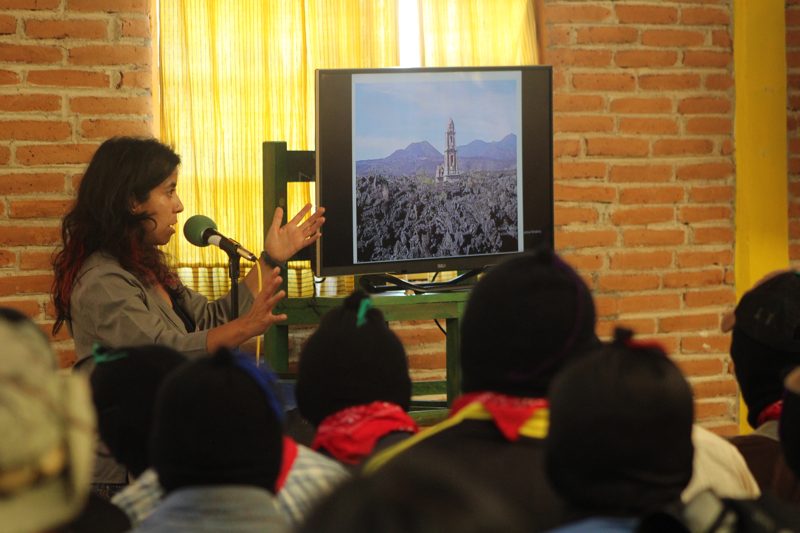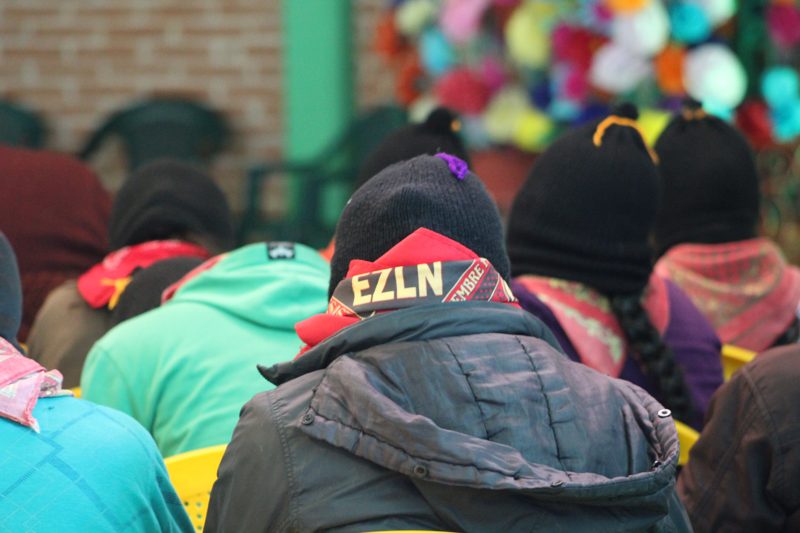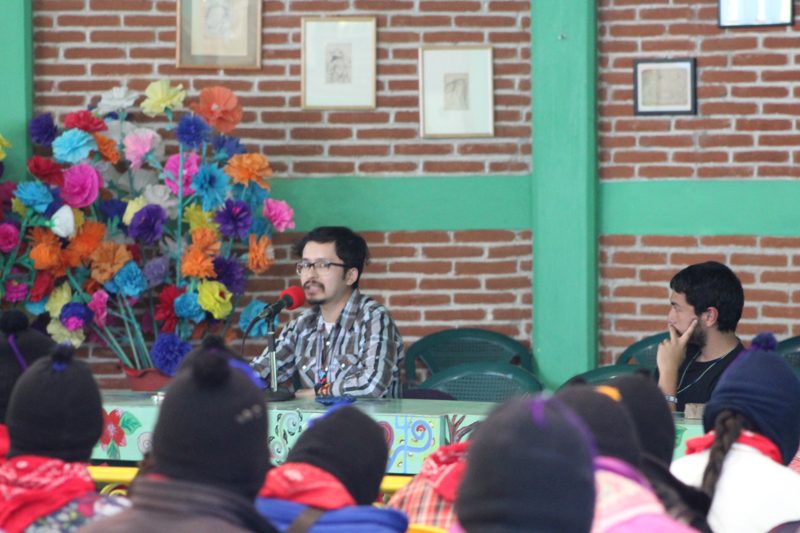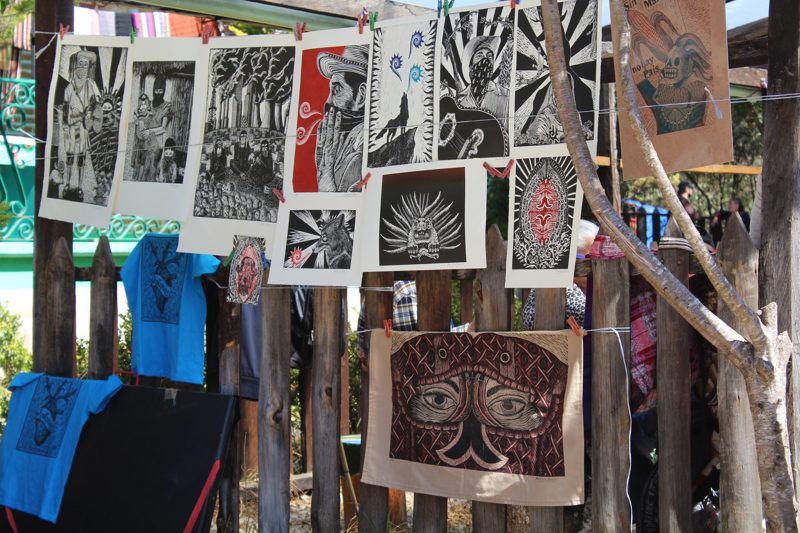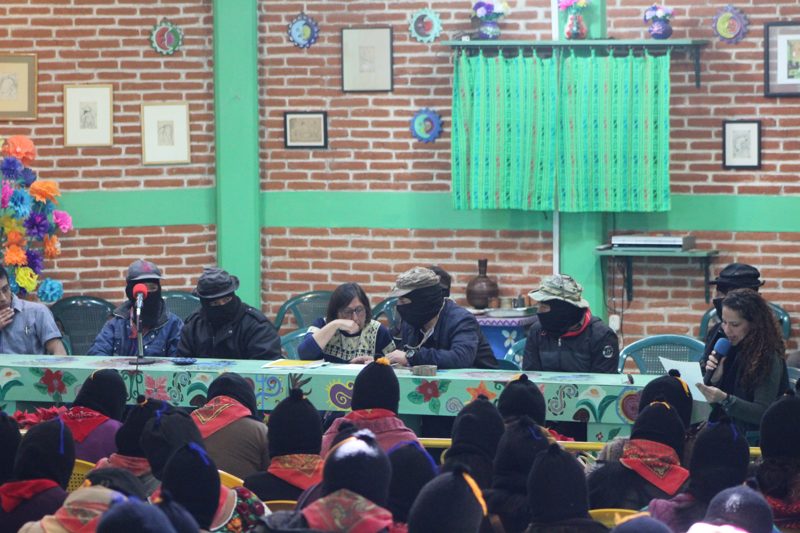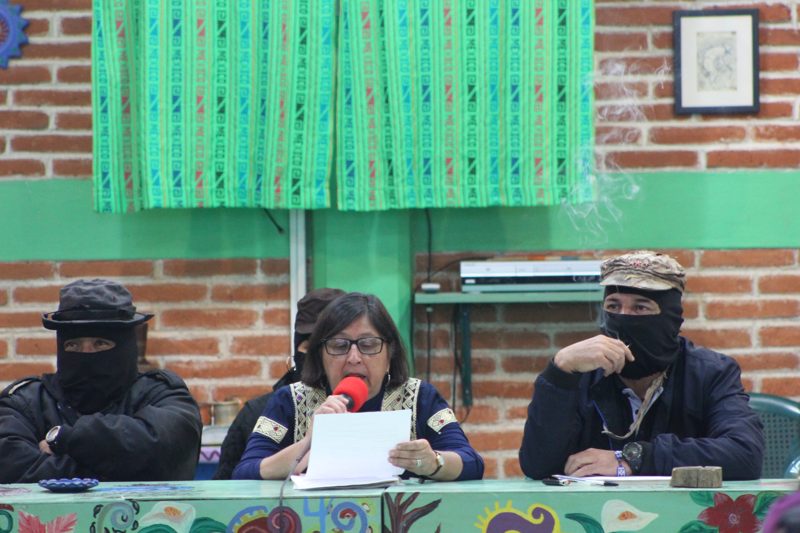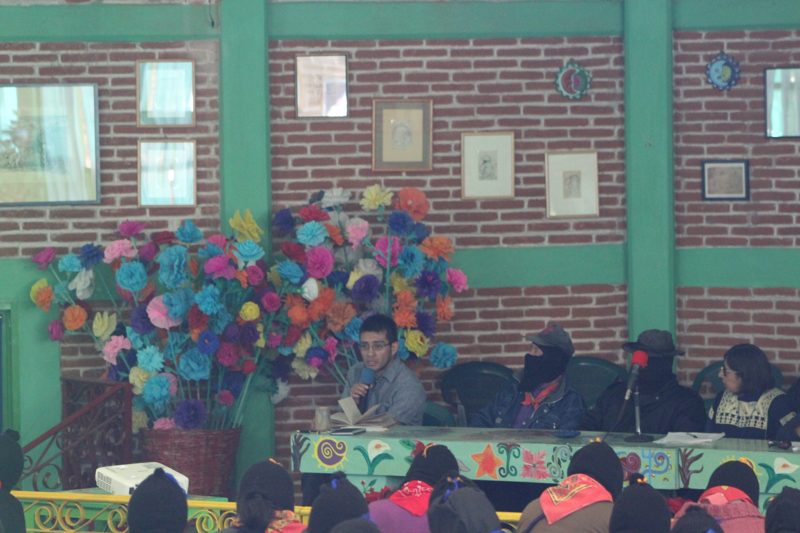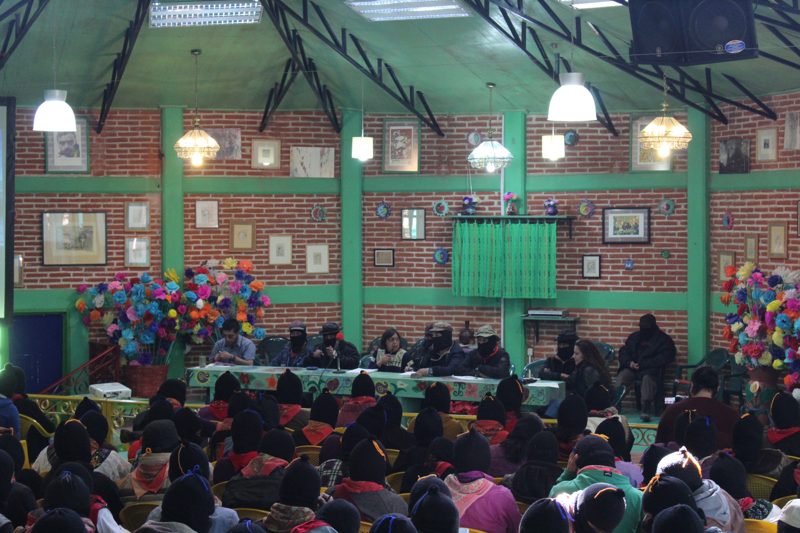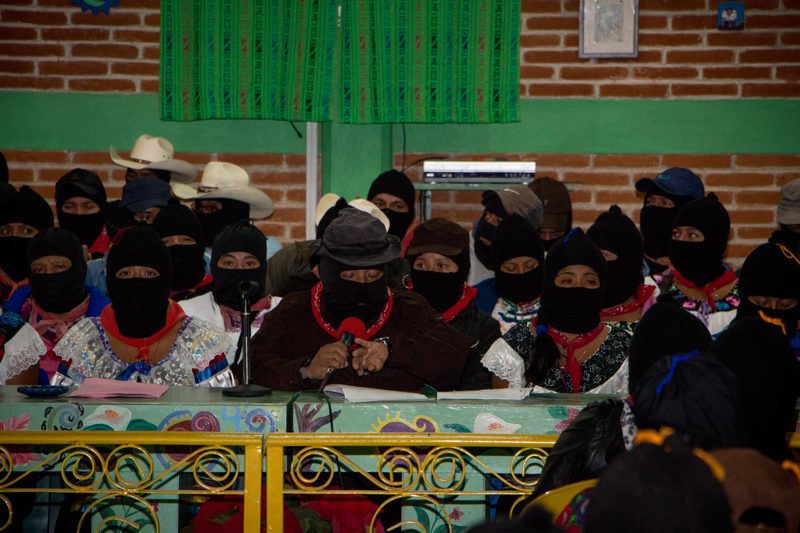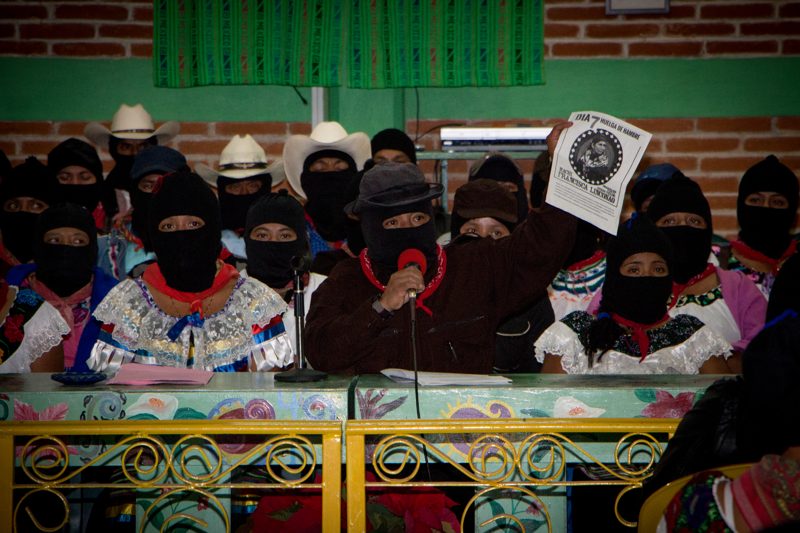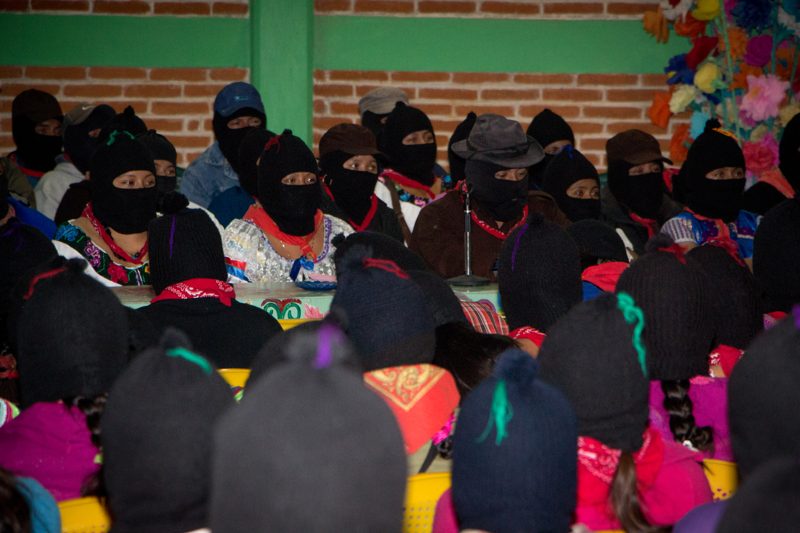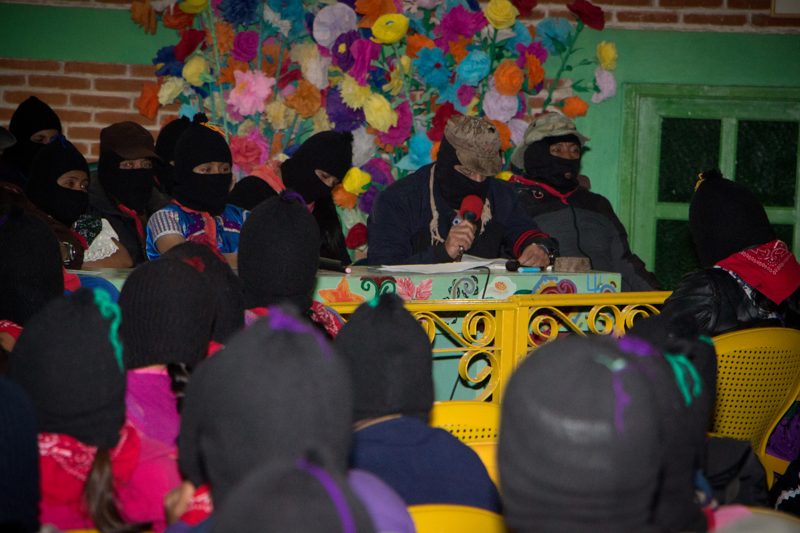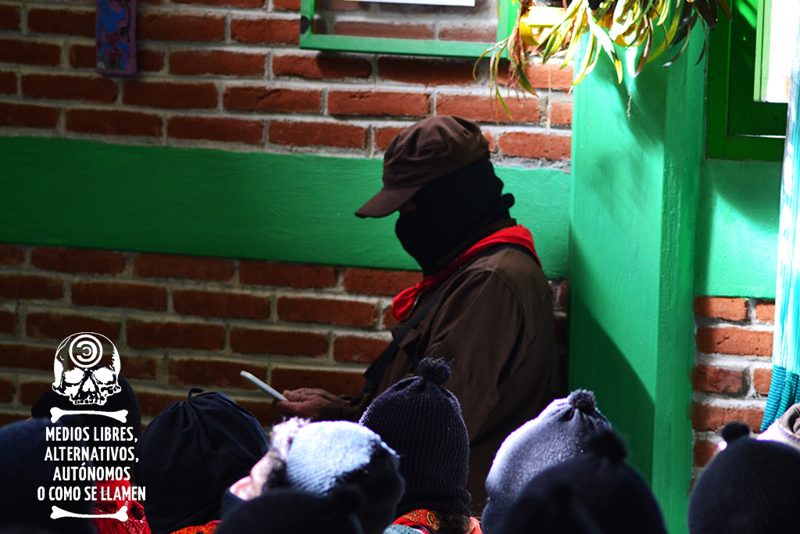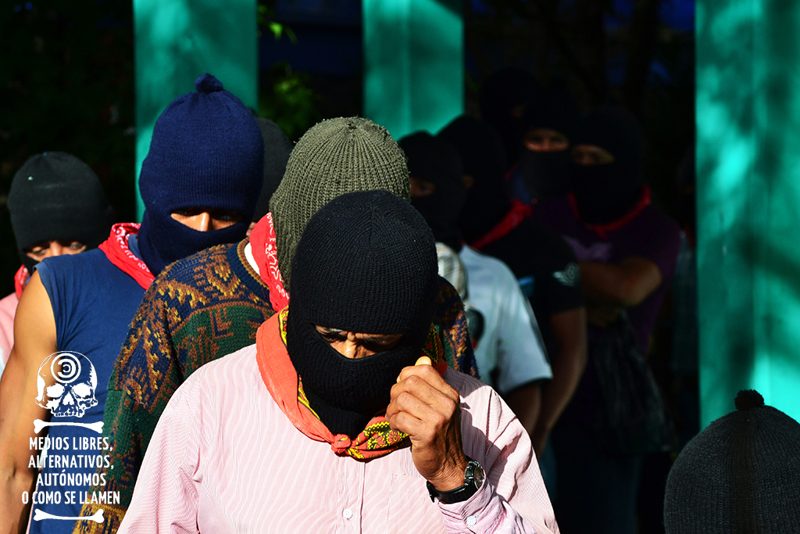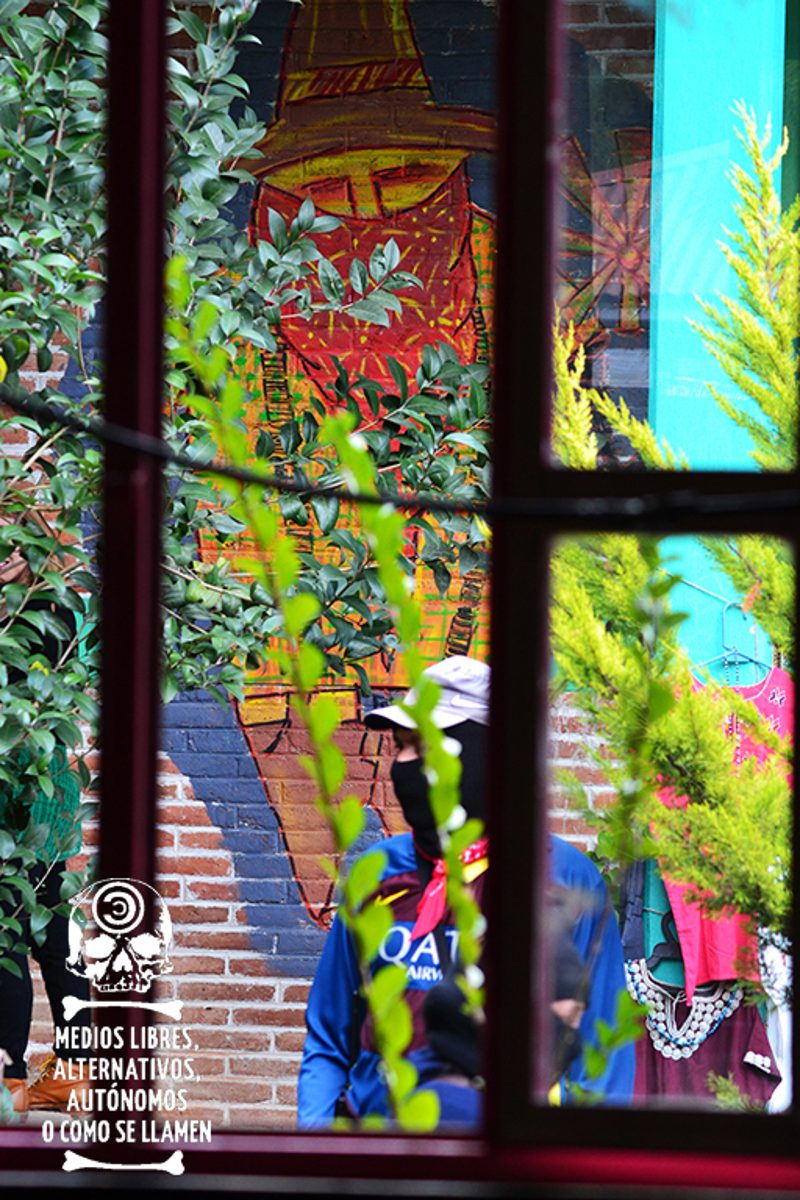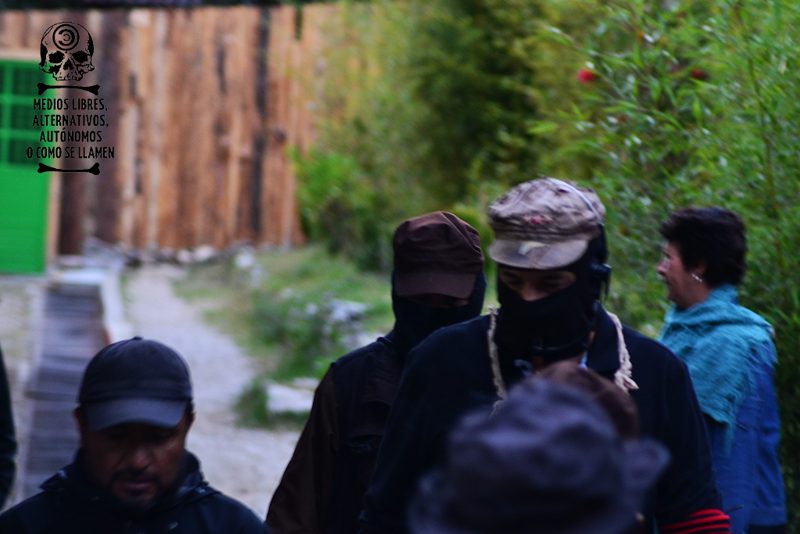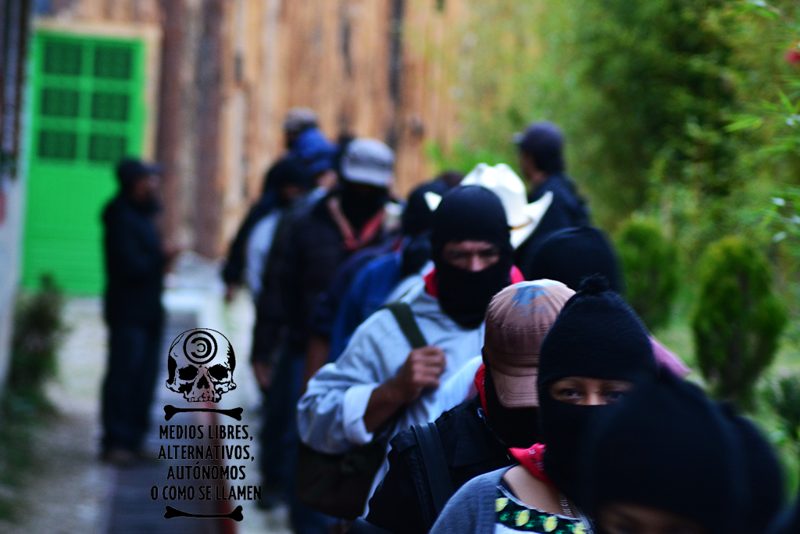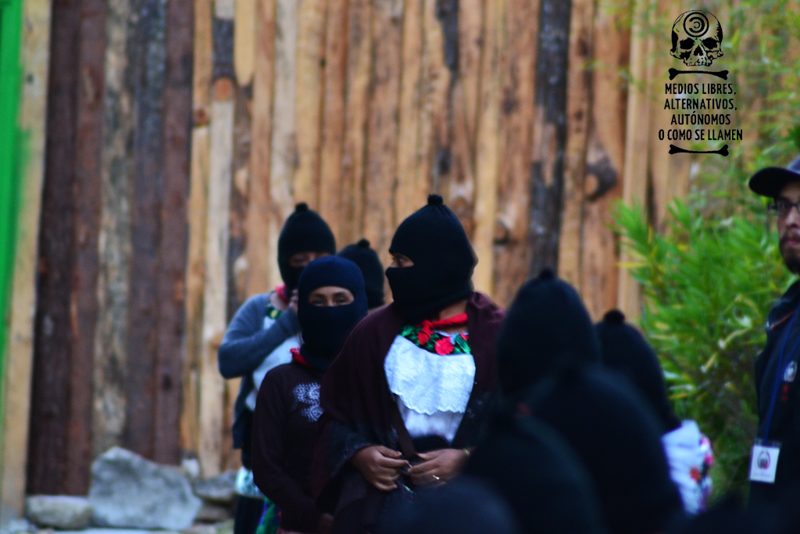Sorry, this entry is only available in Español. For the sake of viewer convenience, the content is shown below in the alternative language. You may click the link to switch the active language.
L@s Zapatistas y las ConCIENCIAS por la Humanidad
4 de enero de 2017
Cideci / Universidad de la Tierra Chiapas
El 4 de enero de 2017 concluyó el encuentro L@s Zapatistas y las ConCIENCIAS por la Humanidad con seis ponencias que, con diferentes enfoques y desde diferentes disciplinas, reflexionaron sobre la ciencia y la conciencia: los mecanismos que con frecuencia ponen a la ciencia al servicio del poder y del capital y la posibilidad de encauzar el pensamiento científico para el bien de la humanidad. Se realizaron también las últimas tres pláticas de divulgación.
Al final del encuentro, las y los alumnoas zapatistas se presentaron e hicieron una evaluación colectiva del encuentro y de las palabras de lxs científicxs, los Subcomandantes Insurgentes Moisés y Galeano dieron sus palabras finales, y el Subcomandante Moisés leyó un pronunciamiento conjunto del CNI y el EZLN por la libertad de la hermana mapuche Machi Francisca Linconao Huircapan.
El encuentro termina en la Universidad de la Tierra Chiapas, pero, como dicen las y los zapatistas, falta lo que falta. Las y los alumnxs zapatistas regresan ahora a sus comunidades para transmitir la palabra de lxs científicxs a los miles de jóvenas y jóvenes, mujeres y hombres de los pueblos rebeldes. Queda sólo imaginarnos ese proceso: las reuniones, las asambleas, el pensamiento colectivo entregado a la tarea de hacer propio por lo menos parte de las palabras de lxs 76 científicos que, a lo largo de estos ocho días, compartieron su conocimiento.
Al mismo tiempo, lxs científicos regresan a sus lugares de origen con la inmensa responsabilidad de reflexionar sobre la pregunta zapatista que se destaca sobre todas las otras: ¿Y ustedes qué? Y queda la invitación zapatista. Por un lado, la propuesta de un encuentro dentro de un año, en diciembre de 2017 y/o enero de 2018, para un debate entre científicxs, para pensar colectivamente sobre propuestas para encaminar el quehacer científico para beneficio de las comunidades y la humanidad. Por otro lado, la invitación abierta a acercarse en cualquier momento a las comunidades y compartir sus saberes con los pueblos zapatistas.
Y para las y los demás, para todas nosotras, la inquietud y la responsabilidad de unir ciencia y conciencia ante el colapso mundial en el que vivimos y la pregunta insistente, dura y esperanzadora a la vez, de lxs zapatistas: ¿Y ustedes qué?
(Ve también: El zapatismo, la ciencia consciente y la función del arco iris.)
(Cobertura completa del encuentro L@s Zapatistas y las ConCIENCIAS por la Humanidad aquí.)
Ponencias:
Dra. Celia Oliver y Dr. César Abarca – “Reflexiones bioéticas sobre la inversión de recursos especializados en ciencia, arte y humanidades, el empleo, y espacios educativos”:
[podcast]https://radiozapatista.org/Audios/dia8_ponenciaceliaoliverycesarabarca.mp3[/podcast]
M. en C. Hugo I. Cruz Rosas – “Un posible lugar para la ciencia básica en el proceso de transformación social”:
[podcast]https://radiozapatista.org/Audios/dia8_ponenciahugocruz.mp3[/podcast]
M. en C. Ma. del Pilar Martínez Téllez – “Las ciencias y la hidra capitalista”:
[podcast]https://radiozapatista.org/Audios/dia8_ponenciapilarmartinez.mp3[/podcast]
Dra. Martha Patricia Mora Flores – “Dos formas de mirar a la Naturaleza: La del patriarcado con su lente capitalista y la mirada muy otra de los pueblos”:
[podcast]https://radiozapatista.org/Audios/dia8_ponenciamartamora.mp3[/podcast]
Fis. Nelson Ravelo – “¿Cómo los movimientos sociales pueden apropiarse de la construcción de una ciencia y una tecnología acorde a la transformación social?”:
[podcast]https://radiozapatista.org/Audios/dia8_ponencianelsonravelo.mp3[/podcast]
Dr. Steven Rose – “Science for oppression or science for liberation?”:
[podcast]https://radiozapatista.org/Audios/dia8_ponenciastevenrose.mp3[/podcast]
Pláticas de divulgación:
M. en C. José Manuel Serrano Serrano – “¿Qué cantan las hembras en ambientes donde predominan los machos? El caso de las ranas y sapos”:
[podcast]https://radiozapatista.org/Audios/dia8_platicajoseserrano.mp3[/podcast]
Preguntas a José Manuel Serrano Serrano:
[podcast]https://radiozapatista.org/Audios/dia8_preguntasjoseserrano.mp3[/podcast]
M. en C. Mariana Patricia Jácome Paz – “Efectos sociales de la erupción del volcán El Chichón, Chiapas”:
[podcast]https://radiozapatista.org/Audios/dia8_platicamarianajacome.mp3[/podcast]
Preguntas a Mariana Patricia Jácome Paz:
[podcast]https://radiozapatista.org/Audios/dia8_preguntasmarianajacome.mp3[/podcast]
Biol. Marina Nolasca Valdés Navarrete – “Acaparamiento del Océano… ¿Ilusión de pescar?”:
[podcast]https://radiozapatista.org/Audios/dia8_platicamarinavaldez.mp3[/podcast]
Preguntas a Marina Nolasca Valdés Navarrete:
[podcast]https://radiozapatista.org/Audios/dia8_preguntasmarinavaldez.mp3[/podcast]
Clausura:
Presentación de alumn@s zapatistas:
[podcast]https://radiozapatista.org/Audios/dia8_presentacion_alumnoas.mp3[/podcast]
Evaluación de l@s científic@s por l@s alumn@s zapatistas:
[podcast]https://radiozapatista.org/Audios/dia8_evaluación_alumnos.mp3[/podcast]
Palabras del Subcomandante Insurgente Moisés:
[podcast]https://radiozapatista.org/Audios/dia8_cierre_supmoi.mp3[/podcast]
Palabras del Subcomandante Insurgente Galeano:
[podcast]https://radiozapatista.org/Audios/dia8_cierre_supgaleano.mp3[/podcast]
Pronunciamiento conjunto del CNI y el EZLN por la libertad de la hermana mapuche Machi Francisca Linconao Huircapan:
[podcast]https://radiozapatista.org/Audios/dia8_pronunciamiento_cni_ezln.mp3[/podcast]
Agradecimientos y cierre – Subcomandante Insurgente Moisés:
[podcast]https://radiozapatista.org/Audios/dia8_agradecimientos_supmoi.mp3[/podcast]


